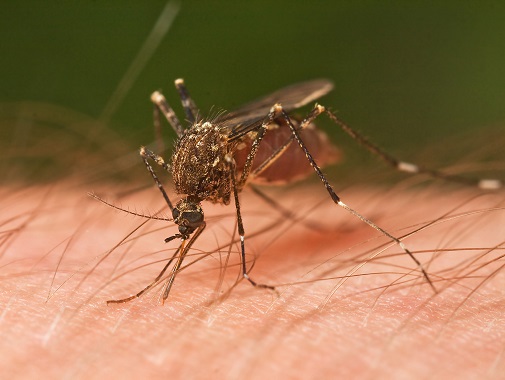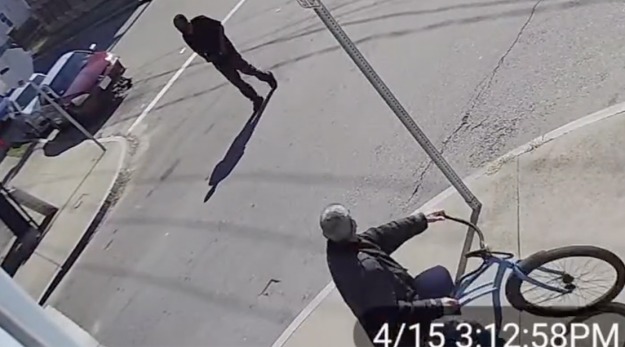The Massachusetts Department of Public Health (DPH) Wednesday announced the first human case of West Nile virus (WNV) in the state this year. The individual is a man in his 60s from Middlesex County who was hospitalized due to his illness. The risk of human infection with WNV is considered to be generally low throughout the Commonwealth.
“We have not seen much West Nile virus activity this year,” said Public Health Commissioner Monica Bharel, MD, MPH. “Still, today’s news is a compelling reminder that we all need to continue to take steps to protect ourselves and our families from mosquito bites.”
In 2018, there were 49 human cases of WNV infection identified in Massachusetts. WNV is usually transmitted to humans through the bite of an infected mosquito. While WNV can infect people of all ages, people over the age of 50 are at higher risk for severe disease. Most people infected with WNV will have no symptoms. When present, WNV symptoms tend to include fever and flu-like illness. In rare cases, more severe illness can occur.
“While Massachusetts is seeing a very active season for another mosquito-borne disease, Eastern Equine Encephalitis (EEE), this is the first human case of WNV,” said State Epidemiologist Dr. Catherine Brown. “We continue to strongly recommend personal precautions to reduce your risk of all mosquito-borne disease.”
Additionally, on August 29 it was reported that a horse from Granby was infected with the EEE virus. The Department has now confirmed that this horse was stabled in Connecticut. As a result, the towns of Granby, Belchertown, Ludlow, Chicopee, South Hadley have all been reduced to moderate risk.
People have an important role to play in protecting themselves and their loved ones from illnesses caused by mosquitoes.
Avoid Mosquito Bites
Apply Insect Repellent when Outdoors. Use a repellent with DEET (N, N-diethyl-m-toluamide), permethrin, picaridin (KBR 3023), oil of lemon eucalyptus [p-methane 3, 8-diol (PMD)], or IR3535 according to the instructions on the product label. DEET products should not be used on infants under two months of age and should be used in concentrations of 30% or less on older children. Oil of lemon eucalyptus should not be used on children under three years of age.
Be Aware of Peak Mosquito Hours. The hours from dusk to dawn are peak biting times for many mosquitos. Consider rescheduling outdoor activities that occur during evening or early morning.
Clothing Can Help Reduce Mosquito Bites. Wear long-sleeves, long pants, and socks when outdoors to help keep mosquitos away from your skin.
Mosquito-Proof Your Home
Drain Standing Water. Mosquitos lay their eggs in standing water. Limit the number of places around your home for mosquitos to breed by either draining or discarding items that hold water. Check rain gutters and drains. Empty any unused flowerpots and wading pools, and change the water in birdbaths frequently.
Install or Repair Screens. Keep mosquitos outside by having tightly-fitting screens on all of your windows and doors.
Protect Your Animals
Animal owners should reduce potential mosquito breeding sites on their property by eliminating standing water from containers such as buckets, tires, and wading pools – especially after heavy rains. Water troughs provide excellent mosquito breeding habitats and should be flushed out at least once a week during the summer months to reduce mosquitos near paddock areas. Horse owners should keep horses in indoor stalls at night to reduce their risk of exposure to mosquitos. Owners should also speak with their veterinarian about mosquito repellents approved for use in animals and vaccinations to prevent WNV and EEE. If an animal is diagnosed with WNV or EEE, owners are required to report to DAR, Division of Animal Health by calling 617-626-1795 and to the Department of Public Health (DPH) by calling 617-983-6800.
More information, including all WNV and EEE positive results, can be found on the Arbovirus Surveillance Information web page at www.mass.gov/dph/mosquito or by calling the DPH Epidemiology Program at 617-983-6800.
 New Bedford Guide Your Guide to New Bedford and South Coast, MA
New Bedford Guide Your Guide to New Bedford and South Coast, MA









